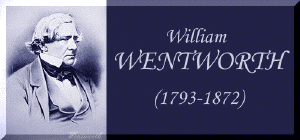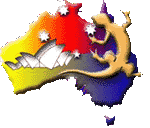|
    |
Wentworth's next major venture was the establishment, with Robert Wardell, of the newspaper The Australian. This was the first independent paper in the colony, and was used as a vehicle for Wentworth's "emancipists" to promote representative government (based on land ownership) and trial by jury. He resisted the efforts of Governors Macquarie and later Darling to regulate the paper, and saw trial by jury extended to the colony's courts in 1830. In 1835 Wentworth founded the Australian Patriotic Society which later drafted the constitution of New South Wales. In 1842 a Legislative Council with some elected members was formed, and Wentworth became a member in 1843. He argued strongly for the interests of land owners to extend self government, helping to draft a new constitution which became law in 1855. Wentworth's influence also contributed to the establishment of the first State primary education system in New South Wales, and he founded the University of Sydney in 1852. Wentworth returned to England in the mid 1850s, where he died in 1872. His main political rival, Henry Parkes, described Wentworth as "beyond doubt the ablest man in the community." Copyright unknown
|
|
|
|
[ Virtual
Australia | The
World We Live In | The
Things We Do ]
Problems/Broken Links can be reported
to
All text and
graphics unless otherwise stated are ©1998-2000 Kim Holden, Virtual Australia.
|

![[Visit Oska]](../../images/oska003.gif)
